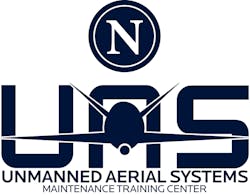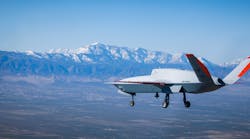THIEF RIVER FALLS, Minn. — Tyler Beckman, Joe Moore and Solomon Kassaye are entering into some rare air — without ever leaving the ground.
They’ll graduate tonight from Northland Community and Technical College, becoming the country’s first unmanned aircraft system maintenance technicians certified by the National Center for Aerospace and Transportation Technologies, an industry group.
Just one of them has a job lined up. Beckman, a native of Pemberton, Minn., will stay at Northland Aerospace, located at Thief River Falls Regional Airport, to serve as the school’s aircraft repair technician.
But Moore and Kassaye are not worried about finding work.
“There are probably 30 companies around the country interested in hiring, but they’re not begging yet, because this is so new,” said Moore, who came here from Arkansas to pursue a career as an industry consultant.
Kassaye, who grew up in Ethiopia, moved the United States six years ago and became a U.S. citizen last year. He came to Northland for the school’s aviation maintenance technology program and stayed two years to earn the UAS certification.
“There’s a lot of options, but hopefully I’ll get work overseas as a UAS mechanic,” he said.
Growing industry
Jon Beck, UAS program manager and instructor, said placement will be no problem for any of the program graduates.
The UAS industry is just emerging, quickly spreading beyond military applications to commercial industry, such as law enforcement and surveillance, fire detection, search and rescue, pipeline and electric transmission patrol, as well as agriculture, mapping, photography and imagery and freight.
“The biggest employers probably will remain the Department of Defense for now,” Beck said. “But as the airspace opens, they will integrate. In the next couple of years, the civilian workforce will be pulling in more and more students, many in this area.”
The Northland UAS program provides certification for maintenance and repair of all components, including remotely piloted aircraft, ground control stations, as well as computer networks, communication and guidance systems.
The UAS program, an expansion of the school’s aviation maintenance technology program, started in the spring of 2011 with a total of $10 million in federal grants. It is expected to enroll 20 to 25 students in the summer semester and 30 to 50 in the fall, according to Beck.
Earlier this year, Northland and UND signed a five-year agreement to cooperate in UAS education, research and training. UND is offering the nation’s first four-year Bachelor of Science degree in UAS operations, training pilots and sensor operators.
UAS repairmen
Beck, a Thief River Falls native who grew up in the St. Cloud area, learned UAS maintenance while serving in the Air National Guard.
“We’re expecting things to explode in the next few years in this area,” he said. “There will be so many opportunities.”
Shortly after finishing final exams Wednesday, Beckman and Moore examined a quarter-inch-thick slab — two pieces of composite carbon fiber over a honeycomb core — they fabricated to be part of an airplane wing, the same as those used in the shell of aircraft, including the Boeing 787.
“It’s awesome, very cool. The strength is amazing,” said Beckman, explaining that the composite is about 40 times stronger than steel.
Beck said while most companies in the UAS industry currently have specialized teams to repair aircraft, the Northland program is leading the transition to more cost-effective alternatives.
“What happens if an aircraft gets damaged,” Moore said, “are you going to send the whole aircraft back to the factory because of one dent? No, you make the repair.”
And as commercial UAS applications expand, from military surveillance to crop monitoring or search and rescue, so will the demand for certified maintenance technicians.
“You have to decide what you want it for,” Moore said, “and we want to fix them.”
For more: http://www.jamestownsun.com/event/article/id/160601/group/Community/

